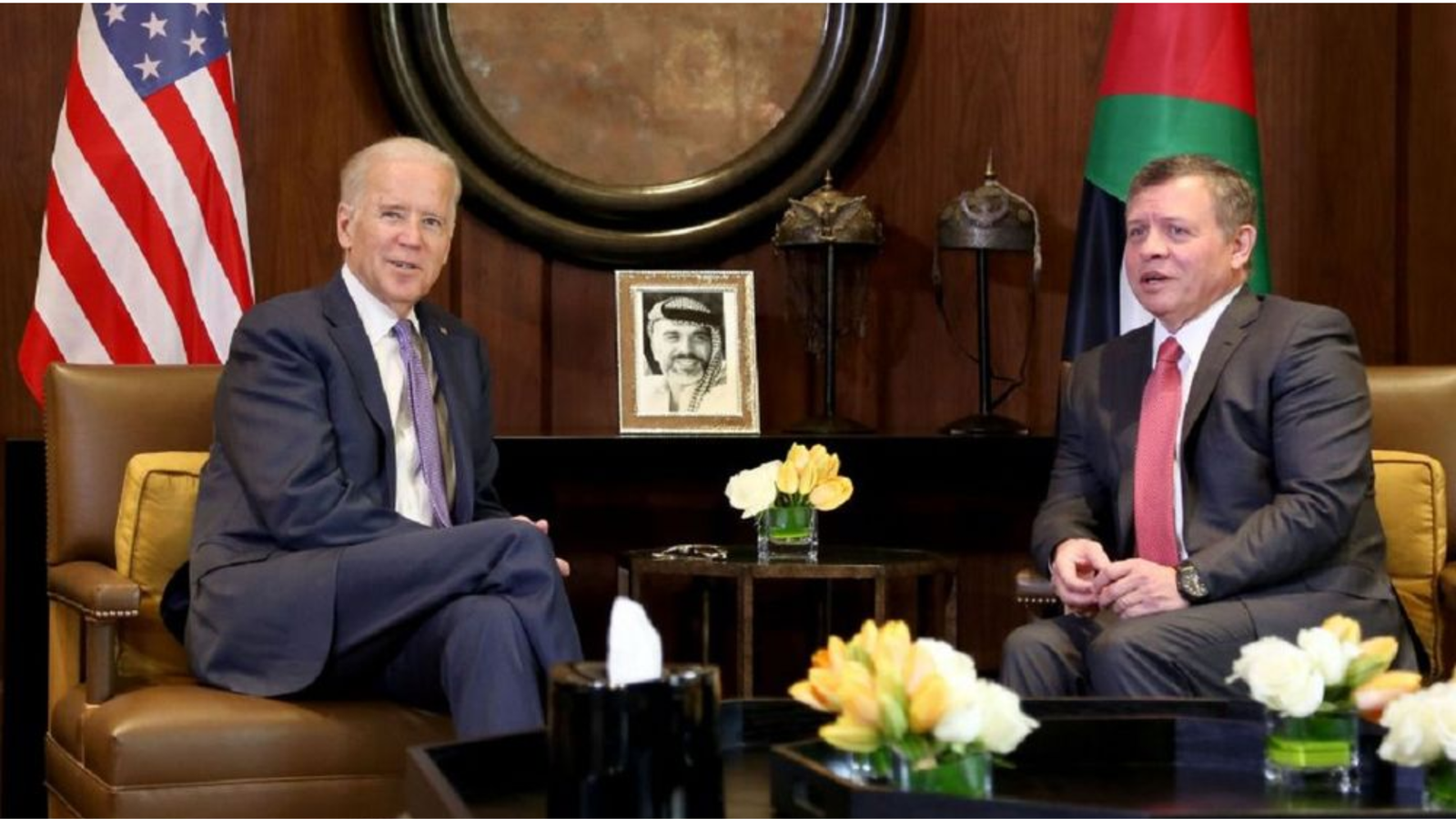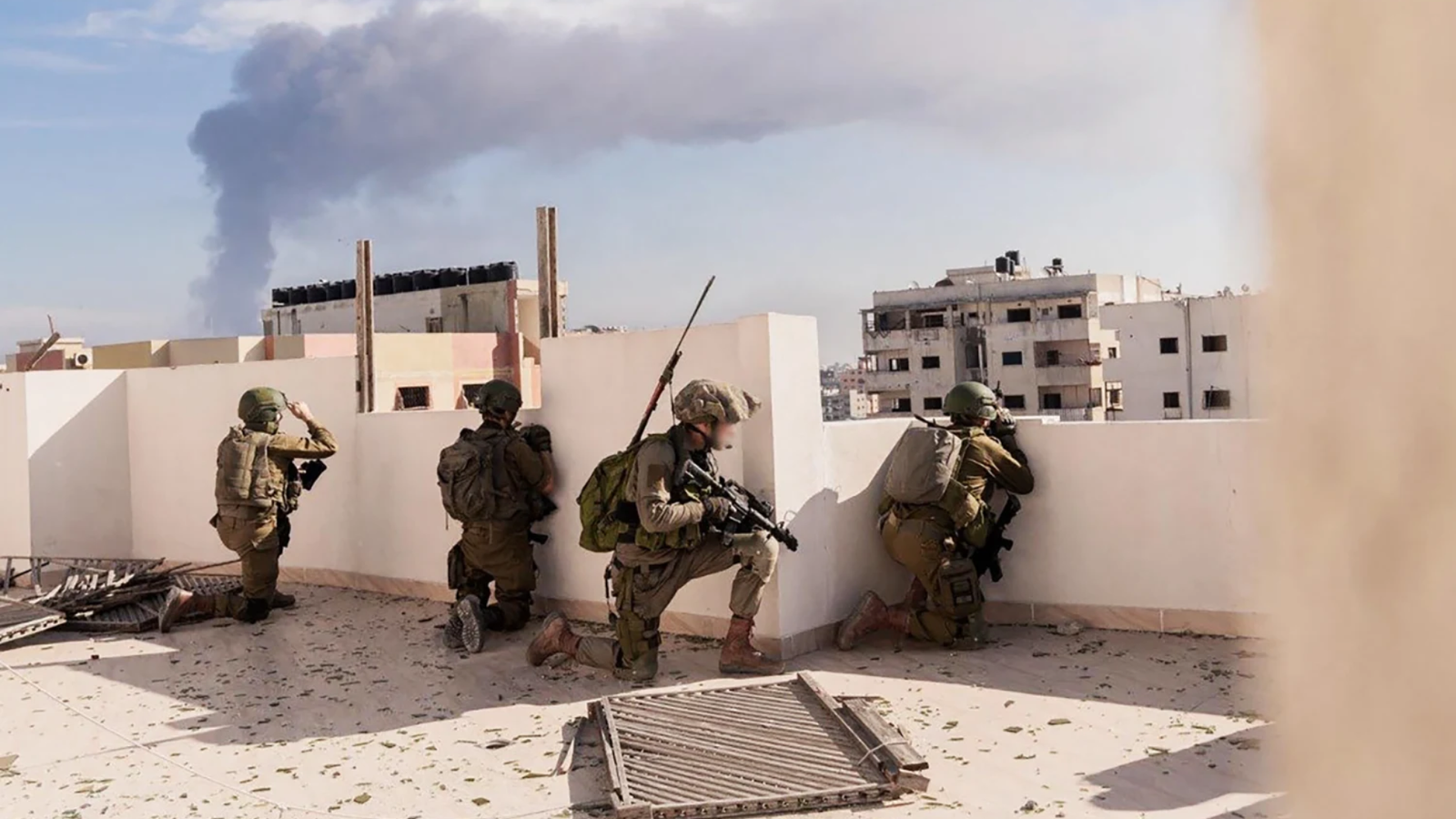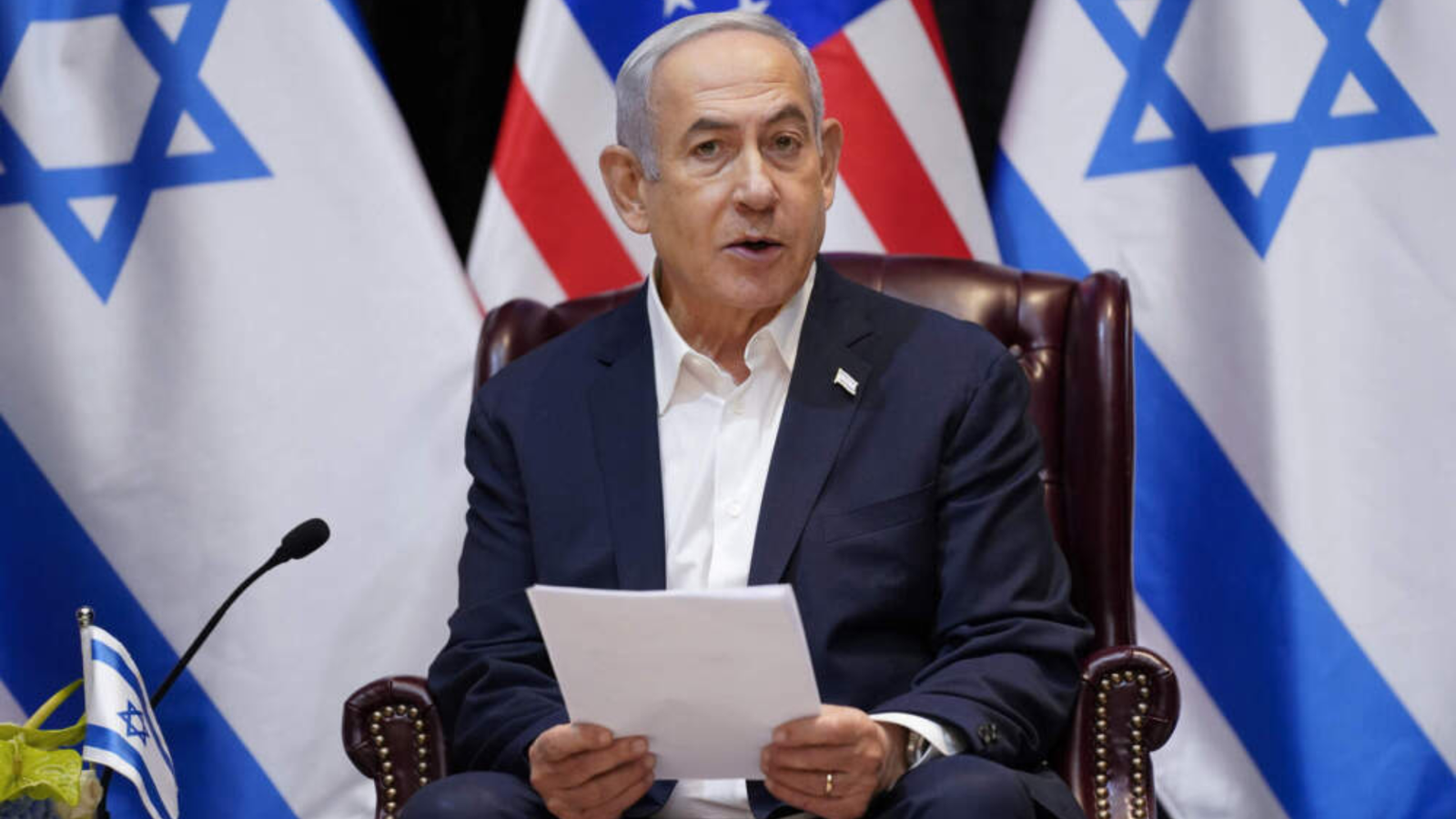Israel, embroiled in a bloody conflict in Gaza and facing widespread international censure, enjoyed one day of unchallenged triumph this past weekend. The Israel Defense Forces knocked down almost all of Iran’s more than three hundred missiles and drones that were fired against Israeli land on Saturday night. For a moment, one could ignore the nation’s numerous political and security problems, which are maybe more severe than any other in its 76-year existence. President Joe Biden urged Prime Minister Benjamin Netanyahu to “take the win” and refrain from starting a regional conflict by retaliating. How much Netanyahu takes notice of the suggestion is unknown.
Following Israel’s spectacular killing of Brigadier General Mohammad Reza Zahedi, a senior leader in Iran’s Islamic Revolutionary Guard Corps, in Damascus earlier this month, Tehran had ordered the attack. The assault may not have done much harm, but it was unprecedented—it was Iran’s first direct attack on Israeli land after years of covert conflict, and any rockets that managed to get past air defenses could have resulted in a huge death toll. Although it was clear that the Iranians intended to attack military targets, such as an air base in Nevatim, missiles were intercepted above Jerusalem and other residential areas. Iron Dome and Arrow 3, Israel’s air defense systems, however, prevented more than one serious casualty—a small Bedouin girl.

The United States, the United Kingdom, and—remarkably—Jordan, its Arab neighbor, with whom ties have dramatically worsened since the start of the Gaza War, all provided assistance to the Israelis. The Jordanian military shot down multiple drones and cruise missiles that had entered its airspace on their route to Israel early on Sunday morning. Less obtrusive, Iranian drones and missiles were intercepted with assistance from American radar and surveillance systems stationed around the Middle East, some of which are in Arab nations that rarely publicize their alliance with Israel. It’s a regionally constructed, integrated system. According to Andrew Tabler, a senior scholar at the Washington Institute for Near East Policy and former member of President Donald Trump’s National Security Council, I was informed. “Everyone fulfilled their role.”
After it became clear that the attempt had failed, several commentators claimed it had been largely symbolic, that the mullahs had planned to launch a dramatic strike without starting a bigger conflict. Former member of George W. Bush’s National Security Council Michael Singh tweeted that the attacks were “performative.” This theory was supported by some evidence: Iran’s leaders avoided firing larger, more accurate ballistic missiles, which might have had a greater chance of breaching Israel’s defenses; they launched their drones and missiles in waves, making them easier to shoot down; and they telegraphed the attack days in advance, giving the I.D.F. ample time to prepare.
Iran’s allies were also involved in the assault. A portion of the missiles were fired from Iran-supported proxy armies in Yemen, Iraq, and Syria. Although this was essentially a continuation of earlier attacks, Hezbollah, the formidable Lebanese militia stationed on Israel’s northern border, also fired multiple volleys of Katyusha rockets into the Golan Heights. Hezbollah and the IDF have been exchanging missile fire virtually every day since October 7th, causing massive civilian displacement on both sides of the border. Israeli aircraft have also targeted deep inside Lebanon to kill Hamas and Hezbollah commanders. Despite being brutal, those clashes have stayed within bounds.
It was difficult to avoid the conclusion that Iran’s leaders were extremely embarrassed by the abortive attempt. Reuel Gerecht, a resident scholar at the Foundation for the Defense of Democracies and a former C.I.A. officer, told me that Iran’s authorities would have been delighted if the strikes had claimed the lives of a hundred Israelis. However, it appears that what happened had at least some symbolic significance. As the strikes continued, Iranian lawmakers shouted “Death to Israel” from the floor of the Islamic Consultative Assembly. Following that, Iran’s leaders declared that unless Israel responded, they would not take any further action.

The most important query is if Israel will react and if so, how. Israeli defense doctrine has made it a point since 1948 to avenge every attack, usually with more force. However, there is currently a real risk that such a retaliation could start a regional conflict. Along with Hezbollah and Hamas, the Houthis in Yemen, Bashar al-Assad’s marginalized regime in Syria, and the Shiite militias in Iraq are just a few of the allies the Iranian regime has fostered over the past thirty years throughout the region. These allies are primarily anchored in the Shiite confession. These soldiers have been fighting Israel and Americans in the area for years, a tactic used by Iran’s authorities to increase their power and fend off attempts to topple them. Large swathes of Lebanon were destroyed in the brutal thirty-four-day conflict between Israel and Hezbollah in 2006, which began when Hezbollah militants crossed the border. Similar destruction throughout the Middle East may result from an open conflict between Israel and Iran; Hezbollah alone is thought to have at least 100,000 rockets and missiles stationed at launch points throughout the nation.
It’s unclear how Iran was involved in the assaults on October 7. It undoubtedly provided Hamas members with weapons and training, but there is little proof that it assisted in the attack’s planning. Either way, the combat-tested military chief of Hamas, Yahya Sinwar, has expressed clearly his hope that the attack on October 7th will lead to a wider conflict with Israel. Though not totally, he has failed most of the time. The world economy has been affected by the Houthi militia’s frequent attacks on Western ships navigating the Red Sea over the last six months, while Hezbollah has launched sporadic missile attacks into northern Israel. The Iranian general known as Zahedi, who was assassinated by the Israelis earlier this month, was in Syria in order to coordinate Hezbollah’s operations. For years, Israel has responded to Iran by striking its proxies; since 2022, the Air Force has killed over twenty Revolutionary Guard officers in Syria. Israel has sought to cut off Iran’s supply lines to Hezbollah and potentially impede its continuing nuclear program, which seems to be moving closer to producing a viable weapon.
The biggest threat to Israel’s national security is the possibility of an Iranian nuclear weapon. With the potential to destroy large swaths of the nation, such a bomb would significantly change Israel’s perception of security and create a new sense of fear in the Middle East, which is already the most unstable region in the world.
The majority of the limitations on Iran’s nuclear program have evaporated in recent years. The rate at which uranium is being enriched to levels much above those required to fuel a power plant has increased dramatically at the Iranian nuclear plant located in the Great Salt Desert, Fordow, since President Trump canceled the agreement reached with Iran during the Obama Administration. It is generally accepted that Iran possesses enough enriched uranium 235 to produce at least three warheads; in fact, it might be able to finish the remaining procedures needed to detonate a weapon in as little as six months. The previous head of Iran’s nuclear agency, Ali Akbar Salehi, declared earlier this year that his nation has advanced to the pinnacles of nuclear science and technology.
The Iranian leadership may opt to abandon any inhibitions that Supreme Leader Ali Khamenei may still have regarding the pursuit of a nuclear weapon if Israel chooses to launch a direct strike on Iran. According to Gerecht, it’s possible that Khamenei has decided against going nuclear and that he can achieve his goals using conventional means. The Israelis might not want to provoke him if that is the case.
Catastrophic war seems to have chastened at least some Israeli leaders. Israel’s president, Isaac Herzog, declared, “This is a declaration of war,” following the assaults. However, he added swiftly, “Israel has not sought war in this region since its creation.” We’re looking for tranquility. President Biden will undoubtedly offer his thoughts while Netanyahu and his war cabinet consider their options. Israelis began to regard Biden more favorably in the days following October 7th as a result of his prompt and decisive action. However, his relationship with Netanyahu has soured significantly in recent weeks; the I.D.F. maintains that the Israeli airstrike in Gaza early in April killed seven aid workers from World Central Kitchen, a humanitarian assistance organization; the I.D.F. now puts the death toll at thirty-three thousand and rising. Public sentiment in the United States has started to turn against Israel as a result of the Netanyahu government’s inability to outline a precise end goal for the conflict or a political plan for Gaza’s future. One of Israel’s most ardent supporters, Senate Majority Leader Chuck Schumer, recently demanded that the nation hold elections for a new government. Additionally, former House Speaker Nancy Pelosi signed a letter urging Congress to refrain from providing military support until the investigation into the killing of the humanitarian workers is concluded.

Biden took advantage of the opportunity to put pressure on Netanyahu following the deaths of the charity workers. The Israeli government consented to reopen Erez, one of the nation’s principal entry points into Gaza, among other things, possibly facilitating greater freedom of movement for aid supplies. Given the IDF’s outstanding success in fending off the Iranian onslaught, Biden may have another chance to change Netanyahu’s thinking. Biden will probably work to thwart preparations for an attack on Rafah, Gaza, which is the final stronghold of Hamas, in the upcoming days. More than a million Palestinian civilians have taken refuge in Rafah, where they would be most affected by the fighting. This has created a wealth of propaganda possibilities for Iran and its allies. No leader is more eager for a regional carnage than Sinwar; he has always planned to drag Israel into a quagmire, the way the United States was forced to overreact to the September 11 attacks. This is the moment, if Biden ever appeared likely to put the greatest amount of pressure on Netanyahu to exercise self-control.
Biden officials appeared relieved, impressed, and concerned at the same time during a Sunday White House briefing. One senior official called Israel’s military performance against the Iranians “an extraordinary feat of military prowess.” Biden officials were concerned about what might come next. Our aim is to de-escalate for the time being, the official stated.

